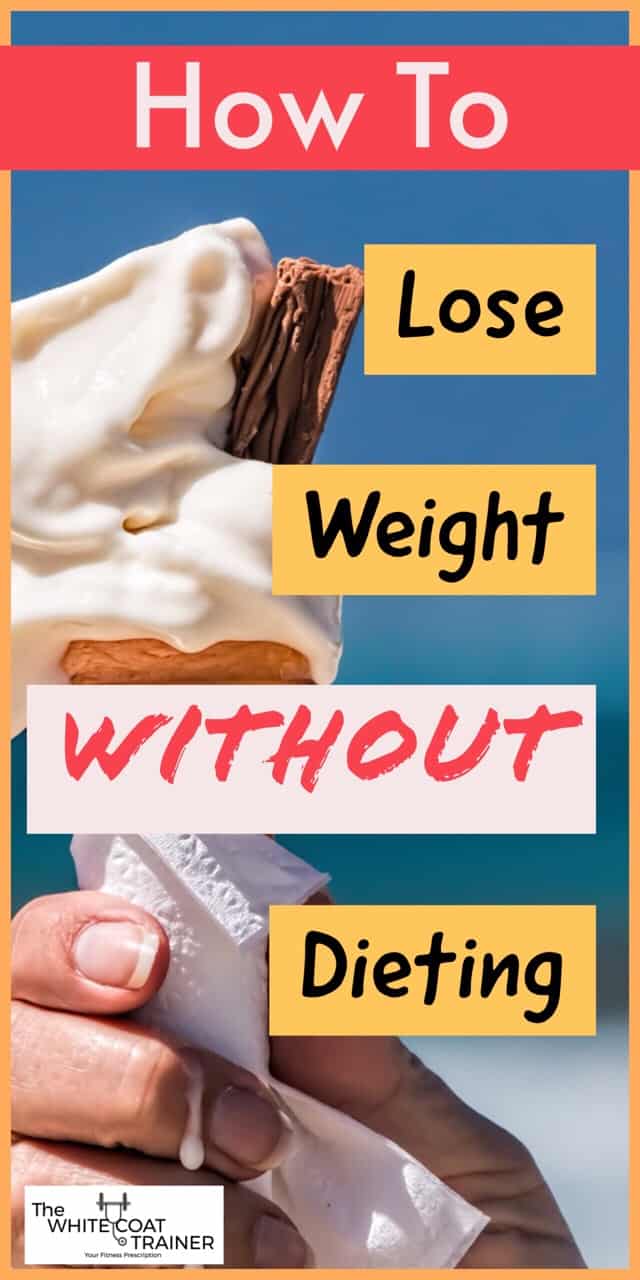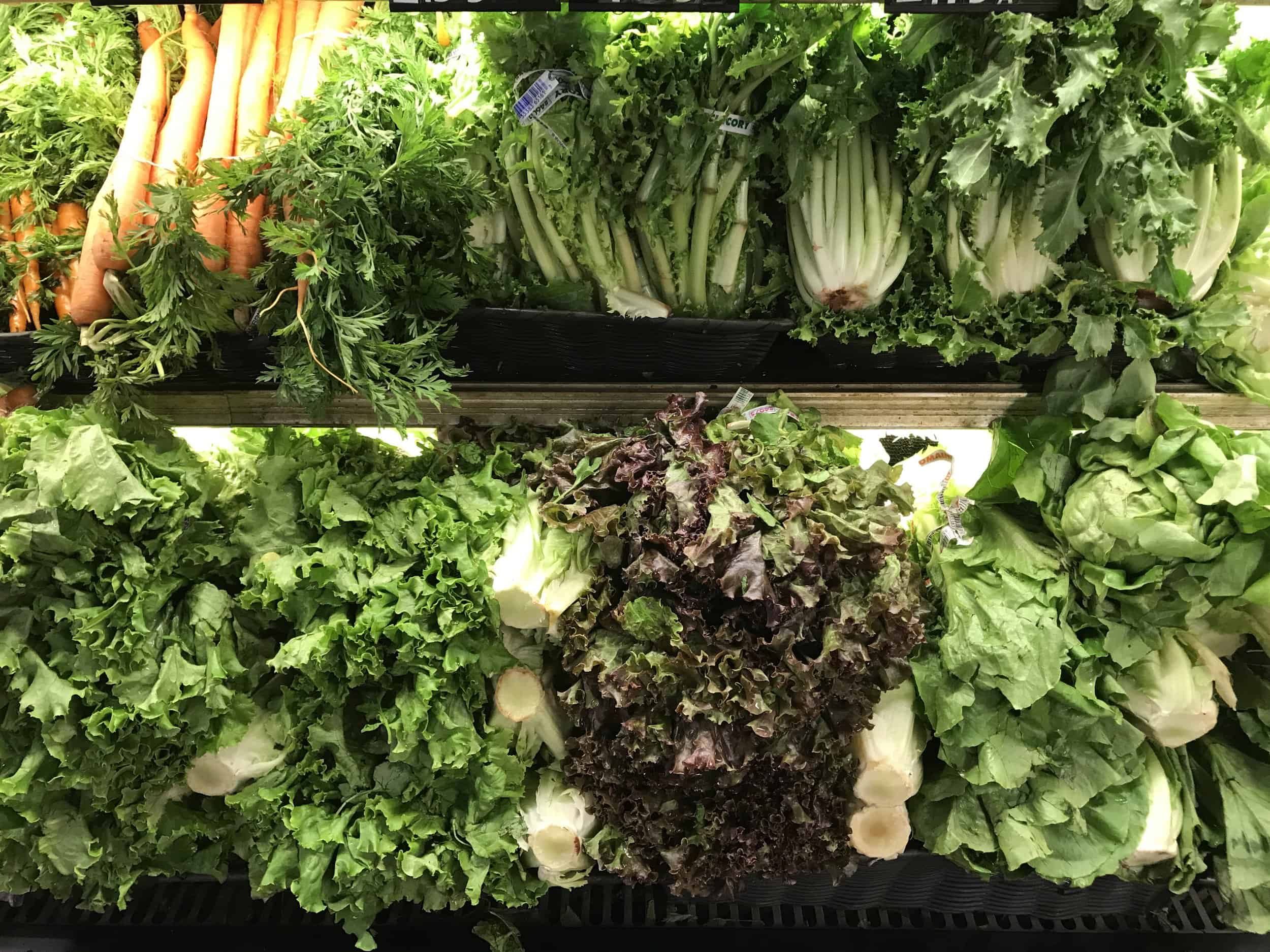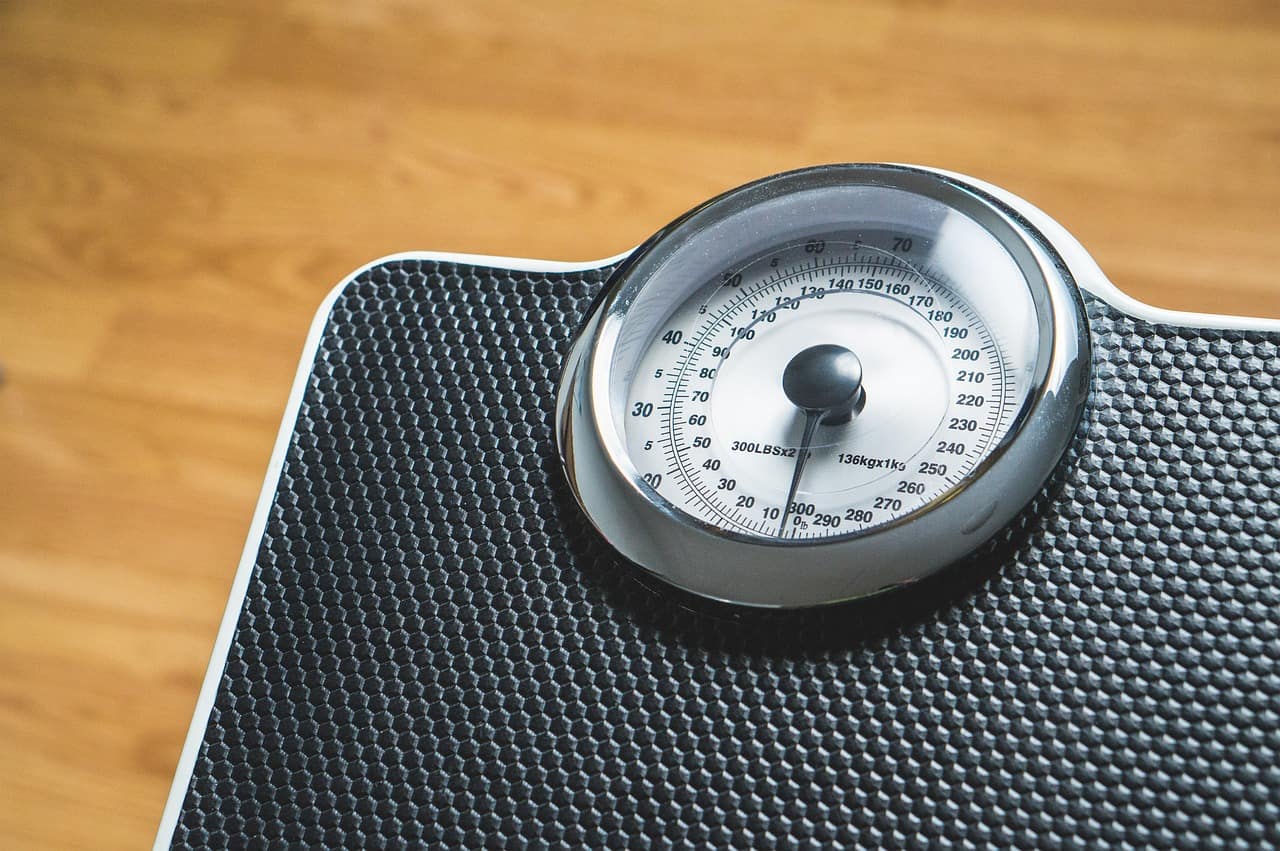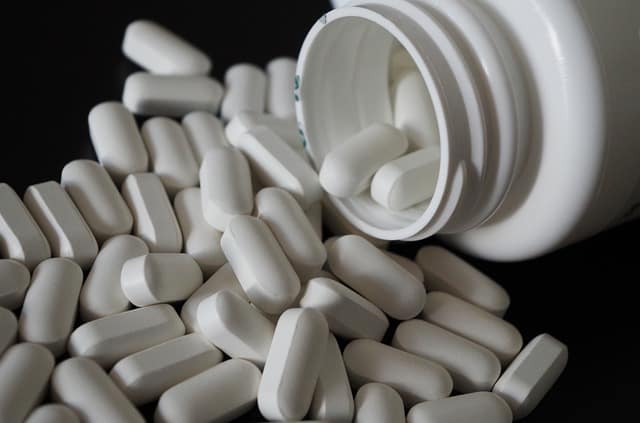Have you ever struggled to lose weight? You’re not alone.
Weight loss is one of the biggest challenges we have been fighting over the past century.
If you’re like most people, you’ve tried numerous dietary strategies but you just can’t seem to keep the weight off.
Some diets ask you to count your calories. Some ask you to count points. Others restrict certain foods.
But not many of them follow this very important rule of dieting.
Today we will go over how to lose weight without actually dieting.

This post is going to cover
-Calorie counting, and whether or not you should do it
-How to determine if the foods that you are eating are affecting your weight
-The number one dietary strategy you must use if you plan on losing weight
-7 Simple ways to implement the strategy that you can begin to implement right away
Alright, let’s get started.
The Number 1 Rule Your Weight Loss Meal Plan Needs To Follow
The number one strategy that you can use to lose weight naturally is to follow a natural diet.
What’s a natural diet?
A natural diet is one that will allow you to consume real food. Food that can be found in nature. Food that is nutrient-dense and gives your body the building blocks that it needs.
Not diet soda.
Not low-fat cheese.
Not vegetable chips (smh).
You need to eat REAL FOOD!
Some of these foods are so common, you probably see them on an everyday basis. We have written a post on 5 Everyday Superfoods You Should Consume On a Daily Basis here.
The best weight-loss diets also understand the importance of balance.
It is okay to eat a Twinkie or a bag of Doritos once in a blue moon, but understand what this means. These foods shouldn’t make up a staple meal in your diet.

If your diet is mainly composed of real, high-quality food, you do not have to be the awkward person that doesn’t eat anything at a social gathering.
Real, high-quality foods will provide your body with an adequate proportion of macronutrients, and a constant supply of all the essential micronutrients.
As a result, these nutrient-dense foods will keep you satiated for a long time- ultimately decreasing the total amount of food you consume!
If we ate like we did before obesity was a problem, we probably wouldn’t be seeing the levels of obesity that we see today.
So how do we implement a weight loss diet?
The easiest way to balance your diet is to simply add in healthy high-quality foods to your current diet.
I didn’t say substitute. I said to add in.
Before taking anything out of your diet, simply add a serving of vegetables to your breakfast, lunch, and dinner. Add a handful of mixed nuts to your daily routine. Eat a serving of berries every single day.
Do this every day on a consistent basis. Once you begin to feed your body real, high-quality food, you will begin to notice positive changes in your body.
These improvements will have such a profound impact on your body, unhealthy foods will automatically start to fall off your diet before you know it.
I Don’t Get It. How Does Food Quality Helps You Lose Weight?
This is just the first step in your weight loss journey.
High-quality foods are so abundant in their nutrition, consuming them will give your body a surge of building blocks.
It’s like feeding your car premium gasoline instead of regular. Your body begins to run more smoothly, which improves your sleep, and inevitably improves your energy levels and your productivity.
And as I mentioned before, nutrient-dense food will fill you up, decreasing the chances of unwanted splurges, and ultimately put you in a caloric deficit.
These foods curb your appetite and force your body to work hard to digest them.
Whether you believe that the Paleo Diet, the Mediterranean Diet, the Low Carb Diet, Vegetarianism, or Veganism is the ideal eating plan, they all have one thing in common.
They all agree that you should eat more REAL, high-quality food.
But Don’t I Need to Count Calories to Lose Weight?
You do not need to count calories to lose weight.
But you do need to know what you are putting in your mouth!
The actual makeup of the calories you are consuming can have drastically different effects on your body, your hormones, and ultimately your appetite.
Let me explain this a little further.
If you were to ask most fitness experts how to lose weight, they will simply say that you must eat fewer calories.
Unfortunately, it isn’t always that simple.
If you don’t pay attention to the actual foods you put into your mouth, you run the risk of consuming extremely high calorie (low quality) foods that do nothing for you in terms of nutrition, or your appetite.
You remain hungry and continue to have the desire to eat.
Anyone can drop their calorie intake for a couple of weeks, but if you don’t do it correctly, you will wind up right back to where you started.
It is downright frustrating.
Calorie counting creates the notion that all calories are created equal and that our focus should be ONLY on the quantity of food we are consuming.
If you only eat absolute junk, simply consuming less of it isn’t the answer. Going from 2500 calories a day of Krispy Kreme doughnuts to 2000 calories a day isn’t something to celebrate.
You will probably lose weight, but you are missing the big picture.
Let’s do this the right way.
What About Those Extreme Diet Plans People Use To Lose Weight?
You may hear of case reports of people doing extreme diets, which have led to unexpected results.
For example, John Cisna, an Iowa high school teacher consumed 2000 calories a day of only McDonald’s while walking 45 minutes each day. He wound up losing 50+ lbs and improved his cholesterol levels.
While this is promising, it most likely represents an exception and not the rule. He started at 280 lbs and significantly dropped his baseline caloric intake by a very large margin.
Simply looking at the numbers, 2000 calories a day is what an average 135 lb female should consume just to maintain her body weight and keep her hormonal processes working in optimal condition.
Any drastic decrease in calories will always cause weight loss in the short term and an inevitable improvement in metabolic abnormalities.
But this is only temporary.
Your body has systems in place to fight these drastic changes.
It’s called survival.
Your body will do whatever it takes to go back to its baseline.
Any slip up from the regimen, and your body will store the extra intake as emergency fat, for when you try another stunt like that again.
I’m also pretty sure that no one else thinks that this is a reasonable diet to emulate.
There are plenty of other cases of people losing weight in a healthier and more palatable manner. No one makes documentaries on these stories, because they aren’t sexy and don’t make for an attractive headline.
Instead of counting calories, let’s focus on the bigger picture. Start adding real, high-quality foods into your diet.
In doing so, you will naturally go into a caloric deficit by consuming fewer foods with a poor nutrient/calorie ratio.
What If I Don’t Consume A lot of Food? Why Am I Fat if I Don’t Eat That Much?
You are still overweight because the diet plan you are following to lose weight is looking only at the short term.
You should not be focusing your time and energy on calories and on quick fixes.
THIS DOES NOT HAPPEN OVERNIGHT OR IN 30 DAYS!
First, I propose that you focus on quality, rather than quantity.
200 calories from Cheez-itz cannot be compared to 200 calories of berries or 200 calories of an avocado.
The reason why >35% of adults are overweight or obese and you are too, is because of the amount of low-quality foods you consume on a daily basis.
A lack of exercise certainly contributes, but not as much as you may think. The foods you put into your mouth plays the biggest role in your body fat levels.

Low-quality foods are making you fat because:
- The macronutrient breakdown of low-quality food is skewed, making it difficult to get an appropriate amount of healthy proteins, healthy carbohydrates, and healthy fats
- Low quality foods tend to be full of simple carbohydrates, an energy source that can quickly be stored as fat if they are not being used for energy in the short term
- Low-quality foods have very little micronutrients. As a result you are not getting any essential vitamins and minerals that are necessary for your body to function optimally.
When you focus on simply dropping your calories and changing nothing else, you will be eating less food overall, and more than likely to become micronutrient deficient.
If you weren’t getting enough Vitamins and minerals to begin with, consuming less food is not the answer.
All of the hormonal processes and metabolic reactions that happen in your body require energy and they require a lot of nutrients.
I will repeat.
Lowering your caloric intake while eating low-quality food will only decrease the number of micronutrients you are consuming, which for many of you, is already an insufficient amount.
Can’t I Just Take A Multivitamin To Supplement These Essential Nutrients?
Absolutely not. There is plenty of evidence to show that supplements do not have any substantial benefit at all.
It’s difficult to know what you are actually getting in your multivitamin, as the supplement industry is not regulated by the FDA. In addition, many of these vitamins may not even be bioavailable.

An excess of low-quality foods cannot be used to build muscle or to help you absorb the essential fat-soluble vitamins- they will do what they do best. Be stored as fat.
So, does counting your points on the weight watchers diet still sound like a good idea?
7 Steps To Lose Weight Without Dieting
Okay, so how do we put this strategy into action. Here are 7 simple ways you can eat real food on your diet plan to lose weight.
- Focus on simply adding high-quality foods to your diet – not substituting, just adding in. The food must be real. You know what is fake food and what is real food.
- Eat a high-quality breakfast, not a bowl of cereal or a cup of coffee. This will get you started off on the right foot, and give your body a surge of nutrients first thing in the morning.
- Drink A LOT of water. Water is an ultimate strategy to help you lose weight that many people don’t know about. In addition, it will help you avoid consuming liquid calories in the form of juice and soda.
- Do not be afraid of consuming fats. If it comes from a real source, then it is more likely to be a healthy fat: This includes avocados, nuts, and seeds.
- You cant eat too many vegetables. Try adding in a serving to every meal. Or you can make a WCT Power Smoothie
- Have a sweet tooth? Consume fruit for dessert. Be exotic. Buy blueberries just to snack on.
- Only eat the number of carbs that fit in your cupped hand
You will notice that high-quality foods vary significantly in their caloric values. Some are ‘high’ in calories and some aren’t.
This is one of those situations where quality > quantity.
Final Words on How To Lose Weight Without Dieting
It is important to understand that weight loss is a long-term commitment and requires a great deal of focus and a great deal of discipline. As a busy individual, it is important to take things one small step at a time.
It all starts with adding real food to your current diet.
Now we turn it over to you.
Have you successfully lost weight following a diet? How did you do it?
Have you ever focused on calorie counting?
How many servings of real food do you eat per day?
Comment below and let us know.
Be sure to check out our diets made simple series, namely How To Stop Counting Calories [1 Unique Thing To Do Instead] to learn other dieting strategies that you can begin using right away.
With that said, your diet is only one piece of the puzzle.
Next, we will talk about another hack that you can use to lose weight: The 3 Best Exercises To Lose Weight Fast [And Build Muscle Too]. Not many people know that muscles are your body’s secret weapon for burning fat.

Alex Robles, MD, CPT / Brittany Robles, MD, MPH, CPT
Alex & Brittany Robles are physicians, NASM Certified Personal Trainers, and founders of The White Coat Trainer: a resource dedicated to improving the health and fitness of busy professionals using time-efficient strategies. Their advice has been featured in My Fitness Pal, Prevention, Livestrong, Reader’s Digest, Bustle, The Active Times, and more. Learn more about them here.

This all makes great sense, and I have been eating this way for 5 years now, along with bike commuting to work every day, and doing resistance training at the gym 3 times a week. I’m 55 and post-meno, and I simply cannot lose the 30 additional pounds to get to my ideal, pre- meno weight. The only time I was able to, I had restricted my calories consistently below 1500 for 3 years. But it all gradually came back when I reverted to a normal diet. It’s so frustrating!
Thank you for reading the post. I totally understand your frustration, and I’ve seen the same thing happen to so many people.
It sounds like you have a decent diet in place. I will be releasing a series of other posts going over additional strategies that you can use to help with weight loss, including other the best kinds of training modalities.
What kind of resistance training are you doing?